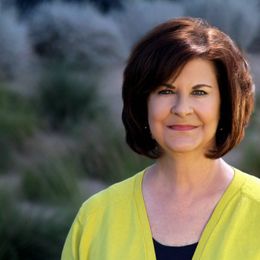The Challenges of Finding a New Doctor
Make a list of your needs, ask around for recommendations and learn more about concierge practices
I had a 12-year relationship with my primary care doctor, which abruptly ended late last year. Why the change? My doctor transitioned to a concierge-style practice that would require me to pay a membership fee of $1,600 per year.

My doctor transitioned to a concierge-style practice that would require me to pay a membership fee of $1,600 per year.
Since I'm healthy with no chronic conditions, I decided to pass on the membership. But, like many other patients, I didn't want to pay two fees — one for membership in the practice and my insurance premiums.
That decision left me with the challenge of looking for a new provider during a physician shortage, which is becoming increasingly complex, especially when looking for practices that accept Medicare patients.
Supply and Demand
The Association of American Medical Colleges predicts a shortage of up to 124,000 primary care and specialty physicians by 2034.
The reasons for the shortage are many and complex, ranging from physician retirement and COVID burnout to a shortage of resident physician positions, high medical student debt, primary care doctors reducing their patient load and an aging population that requires more care.
Additionally, many med students lean toward specialty medicine rather than primary care because the compensation is usually higher.
The U.S. population is getting older. The latest U.S. Census Bureau count shows that by 2034, people aged 65 and older will outnumber children for the first time in the country's history. Those population disparities will put even more strain on health care providers in the future.
Today, the typical primary care provider (PCP) maintains 2,000 to 3,000 patients, and many spend almost half of their time updating electronic patient records and administering insurance paperwork.
So it's no wonder they're transitioning to concierge practices, where their patient load is much smaller, but some patients — especially those in rural areas — are left without care.
A Shift to Concierge Medicine
According to a report by Grandview Research, concierge medicine is expected to grow by 10.3% between 2023 and 2030, meaning that, like me, more patients will have to choose between paying a membership fee and insurance premiums or finding a new provider.
"Patients who haven't seen their primary care doctor for a couple of years may be dropped from the practice."
Yet, Ailene Gerhardt, an independent patient advocate and founder of Beacon Patient Solutions in Boston, says that physician practices transitioning to concierge medicine are only one of the reasons patients may be left in a lurch for health care.
"Doctors retire or move out of the area, and patients who haven't seen their primary care doctor for a couple of years may be dropped from the practice," says Gerhardt.
"There are certainly clinicians who are leaving the traditional model of health care and moving to concierge medicine to reduce the number of patients and paperwork," she adds. "A shift is happening that makes it harder for folks when they learn they have to make a change because they may have to make a financial decision in addition to finding a new physician."
Making The Transition
Dr. Gay Purcell, an MDVIP primary care doctor in Independence, Missouri, switched from a traditional practice to a concierge style after seeing patients for 25 years.
Concierge medicine is expected to grow by 10.3% between 2023 and 2030.
Rather than labeling her practice as concierge, she considers the care she offers as a personalized wellness program for patients who pay about $140 per month to be a member. As a result, she says her patient load decreased from 3,500 to 600. Purcell accepts patients' insurance, as well as Medicare.
In addition to providing annual insurance-approved exams that include recommended regular screenings, Purcell also offers each patient an additional comprehensive wellness exam each year that is included in their membership fee.
She explains that her practice focuses on wellness coaching, prevention programs and proactive care for chronic conditions.
"During those exams, we perform specific tests for cardiovascular health, gait speed and balance, muscle and grip strength, vision and hearing, and check for issues like sleep apnea, sexual function, depression and anxiety," says Purcell.
During a 90-minute follow-up appointment, she reviews all the test results, focuses on patient education, and discusses health goals with her patients, which usually include exercise and nutrition guidance.
Purcell says she derives a lot more satisfaction working with her patients since the switch. "I'm able to spend time with my patients now that I didn't have before. The biggest change I see is with the outcomes for the patients and how successful they are. I feel that I'm able to make a bigger difference that counts," Purcell says.
For longtime patient Jana Waits, Purcell's monthly membership fee is worth the extra time and attention she receives. Waits is 66 and admits she doesn't pay for secondary health insurance in addition to her membership fee.
You need to be clear about what you want in a PCP and don't procrastinate in finding a practice that meets your needs.
She says she's healthy with no chronic conditions, yet as she ages, she likes having a doctor who has the time to listen, go over results and answer questions.
"It's personalized, it's not just that she just hands you a paper with test results, and she'll see you in a year. She gives a lot of thought about you and your lifestyle. Her care has always been high level but now she has the freedom to do more to help her patients," Waits says.
Finding A New Provider
Not all patients can belong to a concierge practice, whether for financial reasons or availability. So how do you find quality health care if you need to switch for any reason?
Gerhardt says that first, you must decide what you're looking for in a health care provider. Then, think about gender and location preferences. Other considerations include ensuring the clinician takes Medicare or your insurance; whether or not they offer telehealth appointments; how they communicate with patients between appointments; and whether there are special language requirements.
"People need to think more broadly about primary care providers. The benefit of primary care is the continuity of care. Are you open to a nurse practitioner or physician assistant? Once you decide, then figure out what sources are available to find a new provider," says Gerhardt.
She says to start by asking family and friends for recommendations and branch out from there. "You should ask any specialists you see for a referral, and one very underutilized resource are pharmacists, who know a tremendous number of doctors," Gerhardt says.
"Look at your health insurance directory of in-network PCPs. Call the hospitals in your area to ask about new doctors who have signed on for hospital privileges. They may be taking new patients," she notes.
The bottom line: If you need to find a new health care provider for any reason, Gerhardt says you need to be clear about what you want in a PCP and don't procrastinate in finding a practice that meets your needs.


